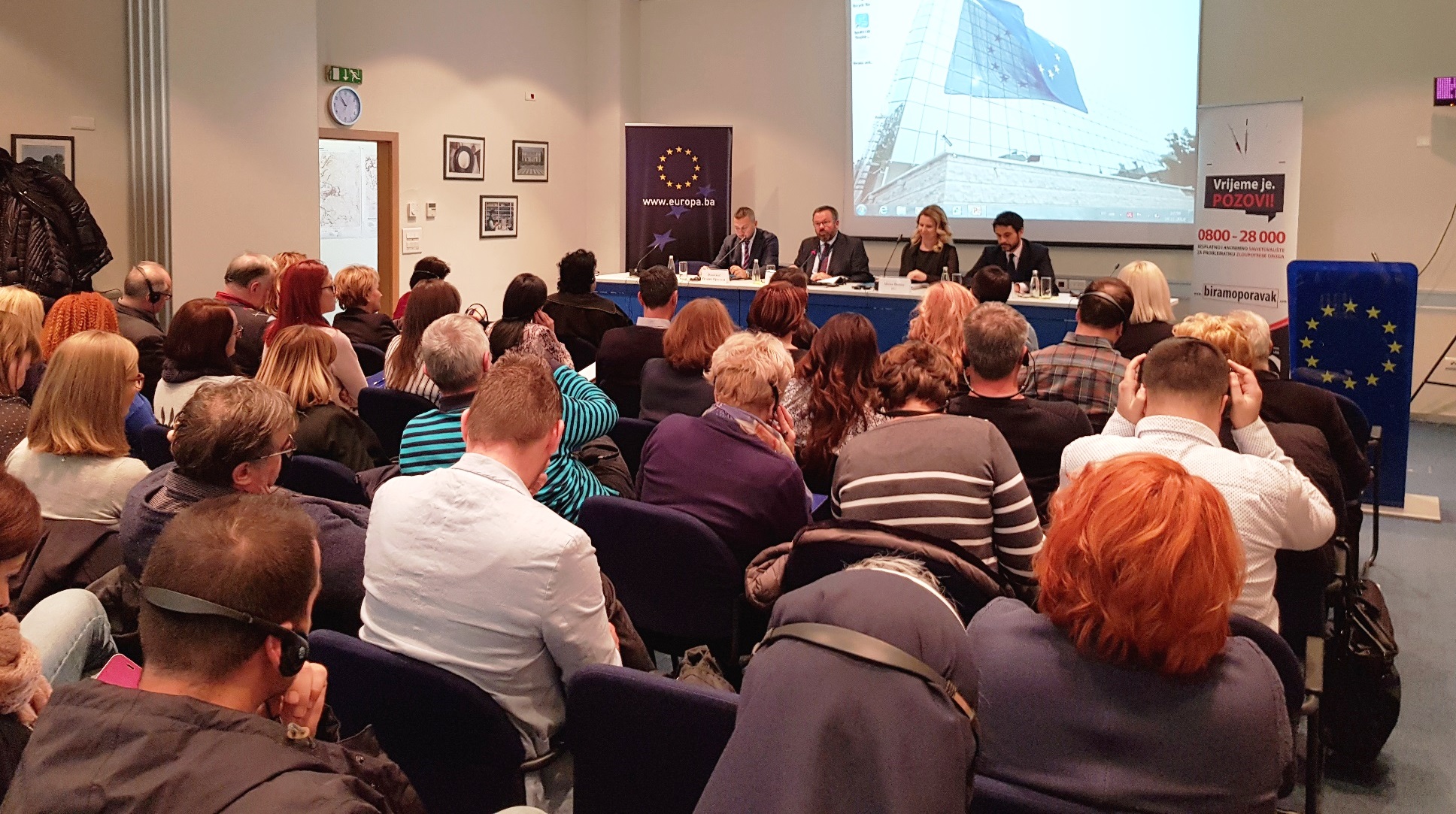Coordinated actions at both national and international level are important for tackling drug abuse and ultimately creating a safer and healthier society in BiH.
This was highlighted at the conference titled “BiH on the road to the EU: Opportunity for development of cooperation and strengthening local communities in the fight against drug abuse” organized by the EU Office in BiH and the NGO “Proslavi oporavak” (Celebrate Recovery) on 19 November 2018 in Sarajevo.
Drug challenges are among the most complex problems a society faces, with wide‑ranging impacts on health and well-being, families and communities, security and sustainable development. The aim of the conference was to discuss drug problems in BiH related to demand and supply reduction, gathering relevant actors pertaining to both areas.
Richard Wood, Head of the Rule of Law Section at the EU Office in BiH, reminded that drug markets remain the largest criminal markets in the EU. More than a third of criminal groups active in the EU are involved in the production, trafficking or distribution of various types of drugs. Wood emphasised the need to address these threats with a clear plan of action through international cooperation at the national, regional and international levels, centred on a comprehensive counternarcotic strategy.
One of the EU’s priorities in this field is to ensure its support focuses on capacity building on both supply and demand reduction and evidence-based, effective and balanced drug policies, through strengthened cooperation including sharing of EU best practices and participation, where appropriate, in EU agencies, such as the EMCDDA, Europol and Eurojust.
In this regard, Richard Wood once again called upon BiH authorities to do their part in order to swiftly sign an agreement with Eurojust and to appoint a National Contact Point (NCP) for cooperation with EUROPOL.
Bosnia and Herzegovina is yet to establish a national early warning system, which is one of the clear requirements for its EU path. Delays in fulfilling these tasks have a direct negative impact on the ability of the country to respond effectively to the ever-evolving and highly diversified trends that follow illicit drugs.
On the drug demand side, the Conference focused on prevention, treatment and support of drug addicts. The discussion focused in particular on the absence of long lasting recovery plans based on individual needs, which could only be implemented through better coordination among all institutions involved.
President of the “Proslavi oporavak” Association Boro Goic presented the outcomes of the UK-led research „Life in recovery“, which was implemented in different countries of the Balkan region. The findings suggest that more emphasis and engagement are needed to deal with the rehabilitation of drug addicts and that a systematic approach would allow for a more successful recovery system.
Bosnia and Herzegovina should build its efforts around two policy areas: drug demand reduction and drug supply reduction, and three cross-cutting themes: coordination, international cooperation and research, information, monitoring and evaluation. This structure has been found to be the best one for tackling this phenomenon and is being applied across the EU countries.
Experts agreed on that if addiction is perceived as a multidimensional personality disorder and is treated as a disease, then a multi-sectorial and multidisciplinary approach is required to provide successful treatment.


